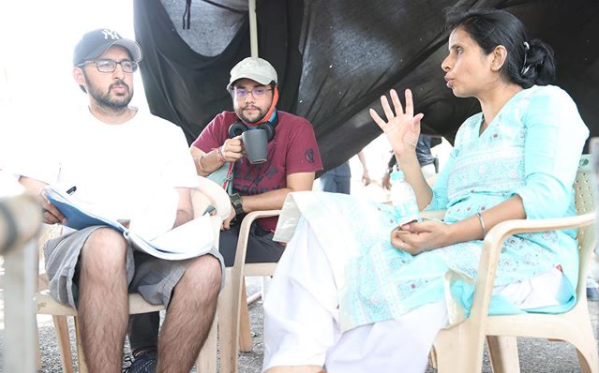Gunjan Saxena: The Kargil Girl directed by debutant Sharan Sharma released on Netflix August 12, 2020.
It’s been a hot topic for various reasons but there’s no denying that it is a well made film. Whether you liked it or not is a different story!
The film is based on the life of Indian Air Force (IAF) officer, Gunjan Saxena who became the first Indian woman to fly in a combat zone.
And that’s about all we knew of her before Bollywood decided to make this biopic.
As audiences we made our assumptions on what to expect from the film, especially with a subject that revolves around the Indian Air Force and a woman facing challenges to break the glass ceiling.
The standard perceptions in this case were – a woman fighting, crying in frustration, maybe even screaming to get attention or be taken seriously, but we see none of that from the lead.
We expected lectures on patriotism and the passion to fight in a uniform, but we don’t see that either.
What Gunjan Saxena: The Kargil Girl does show is a young girl who has a dream and lives each day trying to make it a reality.

Scene from Gunjan SaxenaShe simply wants to fly a plane above the clouds. That’s it!
What we sometimes forget is that filmmakers have right to take creative liberties wherever applicable when making a commercial film. It’s not a documentary.
And this biography is certainly vetted by the hero herself, as they closely worked together to develop the story.
There have been several criticisms over Janhvi Kapoor’s portrayal of the role being too “expressionless,” “dull” and “uninspired.”
And while I understand it, I don’t agree. I think the method applied here is less is more.
As per the film, Saxena was a young girl in school when her brother and mother strongly objected against the idea of her becoming a pilot. Following which she repeatedly encountered roadblocks that kept pushing that dream farther away from her.
She’s introverted and innocent.
She deals with the constant disapproval from family members, financial constraints to apply for training, and even meeting basic requirements to qualify for the program.
How many of us fight such battles almost every day? And we aim to do so calmly, rationally, even when we’re in doubt.
So why are we expecting to see the “hero” of the film to be any different. Aren’t films a depiction of reality?
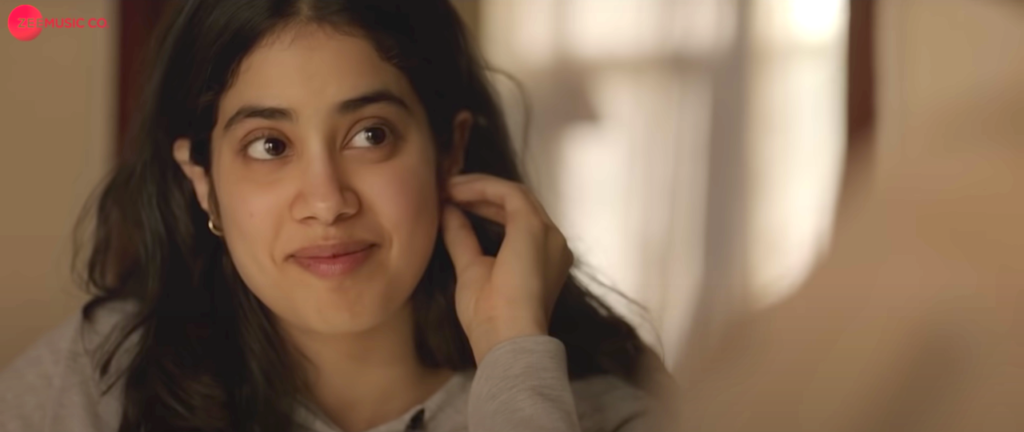
Scene from Gunjan SaxenaSaxena is a woman of few words. Overtime, she has been conditioned to “stay low” to avoid confrontation and perhaps even lower her expectations.
When she enters a world mainly led by men, i.e. the Indian Air Force, she doesn’t expect them to welcome her with open arms. She’s sidelined and left alone to go through the rollercoaster of being discriminated against for her gender… silently.
And she does what women do best in the face of adversity, Saxena improvises to compete for her place – to have an equal opportunity as them.
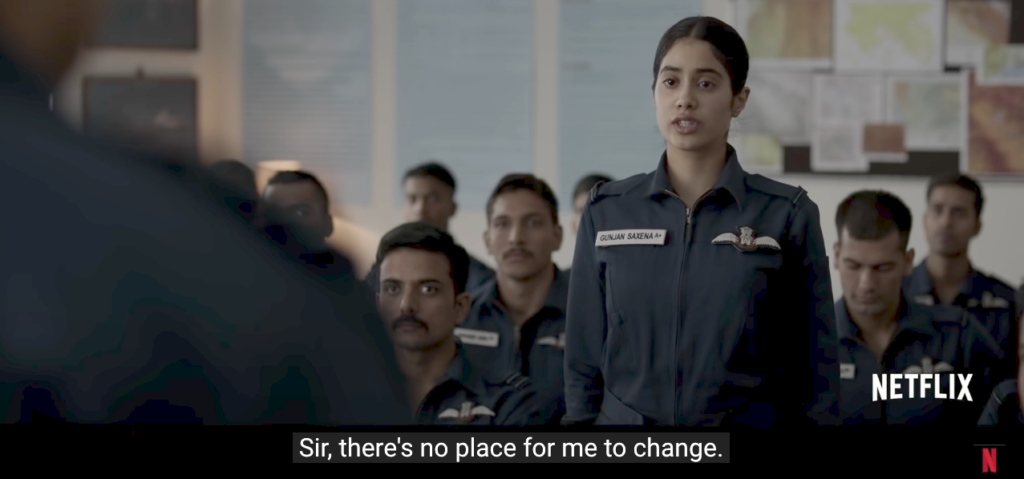
Scene from Gunjan SaxenaWhether it was running to her room to change into her uniform for sortie training or creating a make-shift changing room in the men’s locker room.
Even in her times of victory, she doesn’t celebrate by high-fiving her colleagues or jumping for joy. She lets it sink in and proudly checks it off her checklist.
Whether its “fly like a Tarzan” in training or getting awarded for leading the scoreboard with maximum number of flying hours.
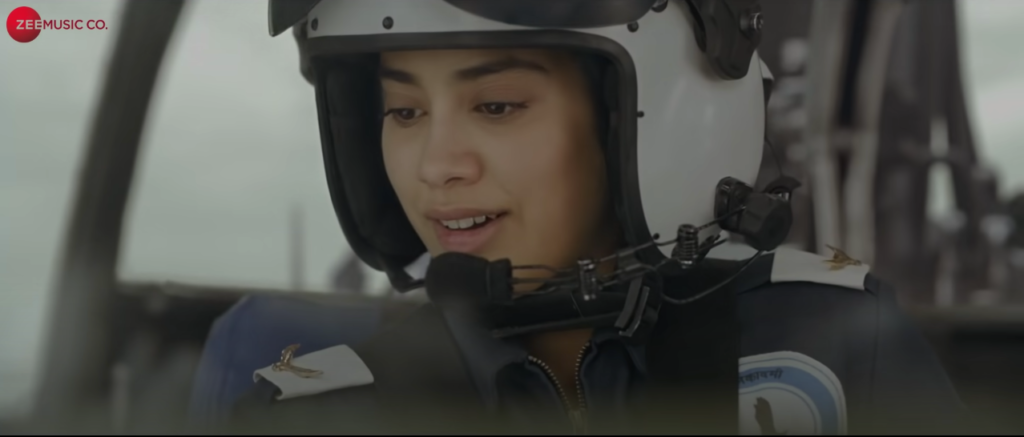
Scene from Gunjan SaxenaThe only place I felt Kapoor faltered was the argument scene with her superiors, when Saxena reaches her saturation point. The emotion of frustration and dialogues needed more projection to create the desired impact.
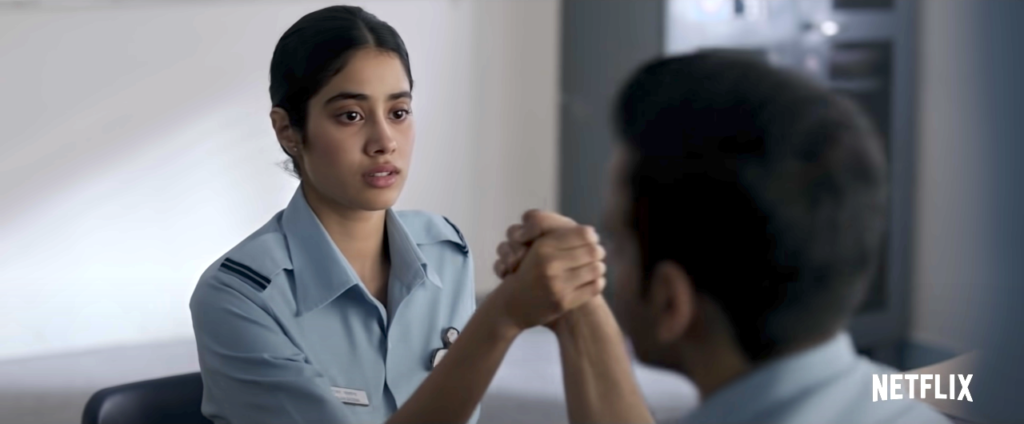
Scene from Gunjan SaxenaComing to the supporting cast led by actress Ayesha Raza Mishra and actors Pankaj Tripathi, Angad Bedi, Manav Vij and Vineet Kumar Singh.
Again, there’s criticism over the supporting cast being stronger than the lead. And once again, I understand but don’t agree with the sentiment – why do we expect the supporting cast to weaker than the lead?
Of course, they are strong actors with years of experience. It’s great to see every actor get their due screen-time to justify their characters and leave an impression.
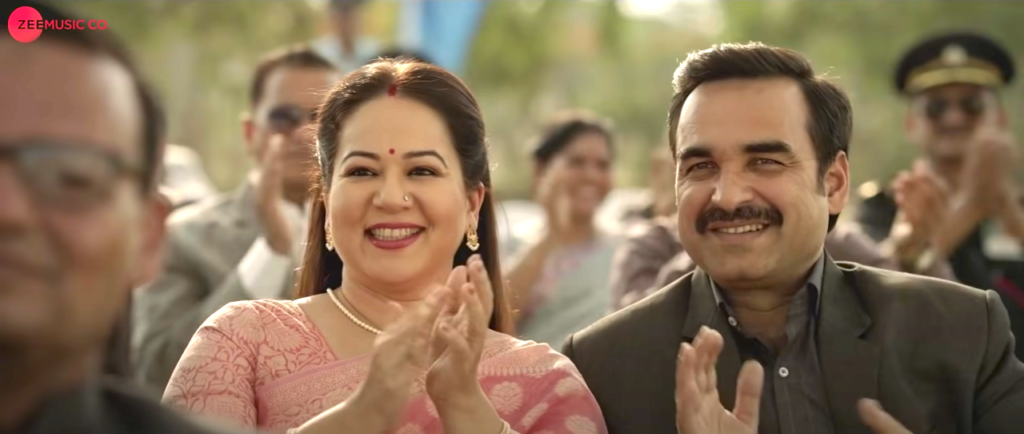
Scene from Gunjan SaxenaThe topic of discrepancies between monetary dues given to such seasoned actors versus inexperienced talent may be up for debate though.
PS. Anyone else felt proud and cried a little at the end to the lyrics of Bharat Ki Beti ??
